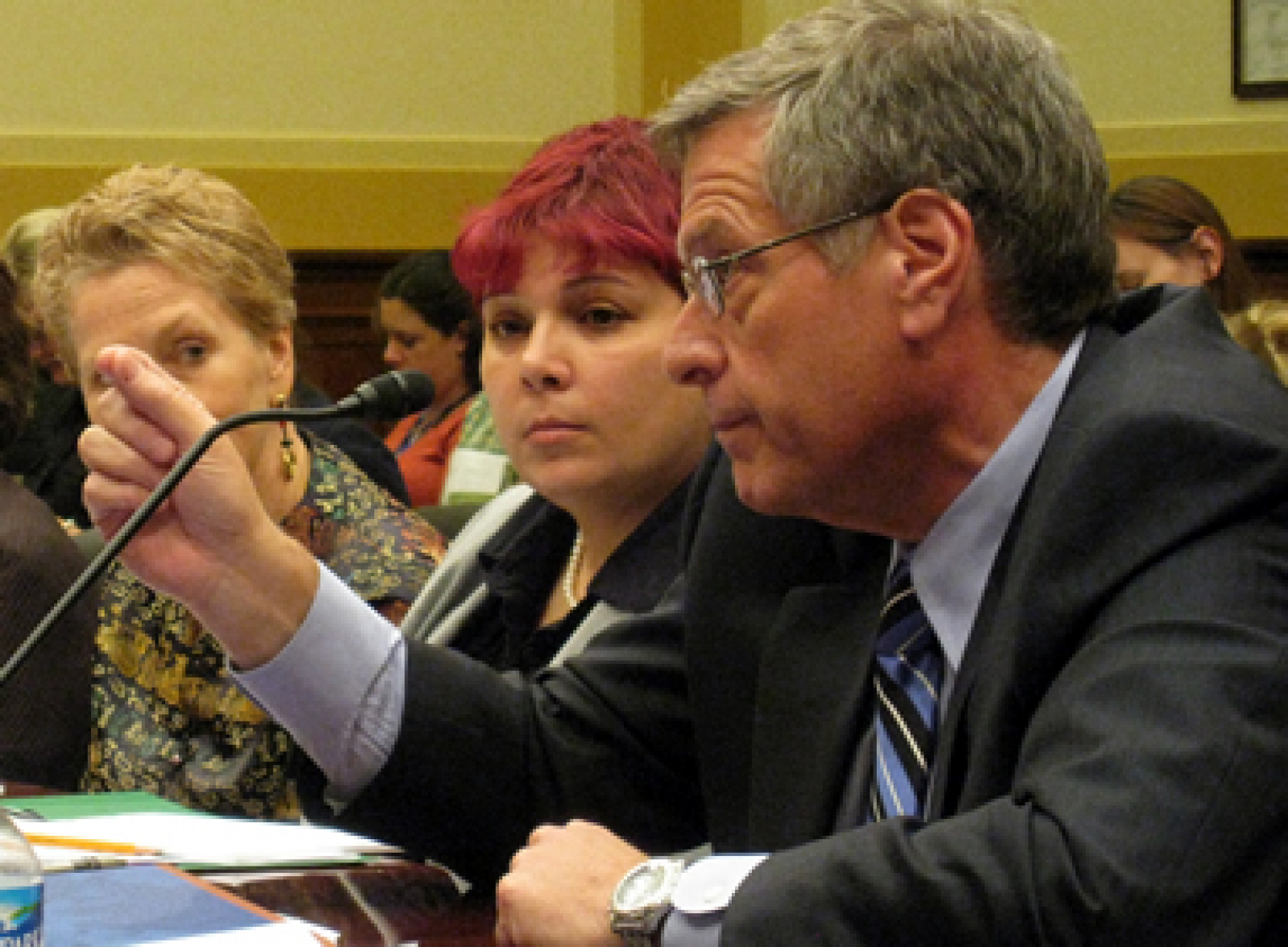
SHARE
In places as diverse as Timor-Leste, Croatia, Morocco, Rwanda and South Africa, increasing numbers of women are being elected to political office. In each case, more women has meant more legislation related to anti-discrimination, domestic violence, family codes, inheritance, and child support and protection.
"Women's political participation results in tangible gains for democracy, including greater responsiveness to citizen needs, increased cooperation across party and ethnic lines, and more sustainable peace," said NDI President Kenneth Wollack in testimony at a June 9 House Foreign Affairs subcommittee hearing on "Women as Agents of Change: Advancing the Role of Women in Politics and Civil Society." The hearing was chaired by Committee Chair Rep. Russ Carnahan (D-MO) and Ranking Member Dana Rohrabacher (R-CA).
Wollack and other panelists discussed the concrete ways in which women help democracy deliver benefits to all citizens. Panelists also stressed the role that the United States must play in promoting gender equality and empowering women politically and economically to help establish stronger, more inclusive democracies around the world.
In the last 10 years, the rate of women's representation in national parliaments globally has grown from 13.1 percent at the end of 1999 to 18.6 percent at the end of 2009. Some regions have seen particularly dramatic increases, such as Sub-Saharan Africa, where the number of women in parliaments has risen from 10.9 to 17.6 percent. While these numbers show progress, women continue to be vastly underrepresented in politics, excluded from decision-making processes and routinely subjected to discrimination and violence.
In spite of enormous social and economic barriers and often in the face of violent opposition, women around the world are demanding their rights to education, security, and healthcare, and claiming a louder voice in decisions that affect their lives and communities. Panelists highlighted the vital role that women can play as leaders in politics and their communities, and stressed the need for increased support for women's political leadership both in the U.S. and abroad.
As Wollack noted, "it is not an accident that the countries in which health, education and economic development are not part of the national agenda are places where women are denied a genuine political voice. Empowering women politically will help countries develop democratic institutions so they can begin to successfully address issues related to security, jobs, human rights, physical well-being and human development." Throughout his testimony, he illustrated how NDI has been working with political and civic leaders for more than two decades to support their efforts to increase the number and effectiveness of women in political life.
Wollack also called attention to the various barriers that limit women's political and civic engagement, namely access to positions of power and to economic resources, lack of government transparency, and pervasive and discriminatory gender stereotypes. He focused on the eight ways to build women's political participation: conducting ongoing communications trainings; building leadership skills; uniting women across political party lines, often in the form of women's caucuses; reforming political parties internally so that women's participation is a real priority; teaching women to train other women so that knowledge and skills are not lost; training elected women so that they are ready to deliver services back to constituents, increasing their chances of re-election; exchanging information internationally; and engaging youth to help change attitudes and behavior towards women.
Other witnesses were: Melanne Verveer, ambassador-at-large for Global Women's Issues; Dr. Esther Brimmer, assistant secretary for International Organization Affairs; Swanee Hunt, chair of the Institute for Inclusive Security and former U.S. ambassador to Austria; and Judy van Rest, executive vice president of the International Republican Institute (IRI). The House Committee members and panelists discussed a range of topics, including women and governance; women and security; women's role in Haiti's reconstruction process; U.S. policies in Afghanistan; violence against women; the importance of ratifying The Convention on the Elimination of All Forms of Discrimination against Women (CEDAW); and the creation of a new United Nations gender entity that would coordinate efforts to support women globally.
Related:
- Mexican men and women work together to elect more women to office»
- National Platform for Women launched in lead up to Iraqi elections»
- Burkina Faso women detail discrimination against women in U.N. report»
Pictured above:Wollack testifies at the Subcommittee hearing
Published on June 14, 2010


